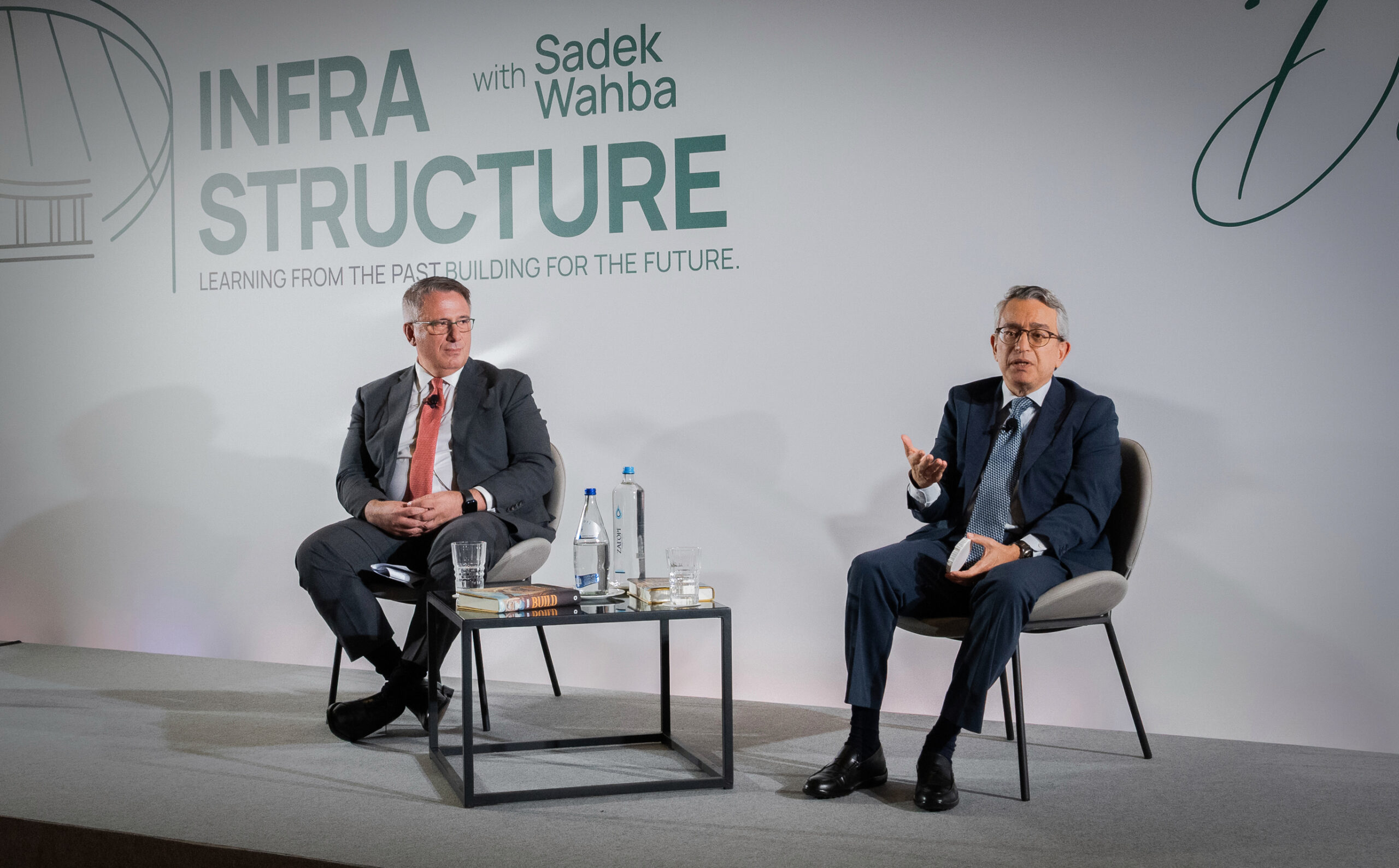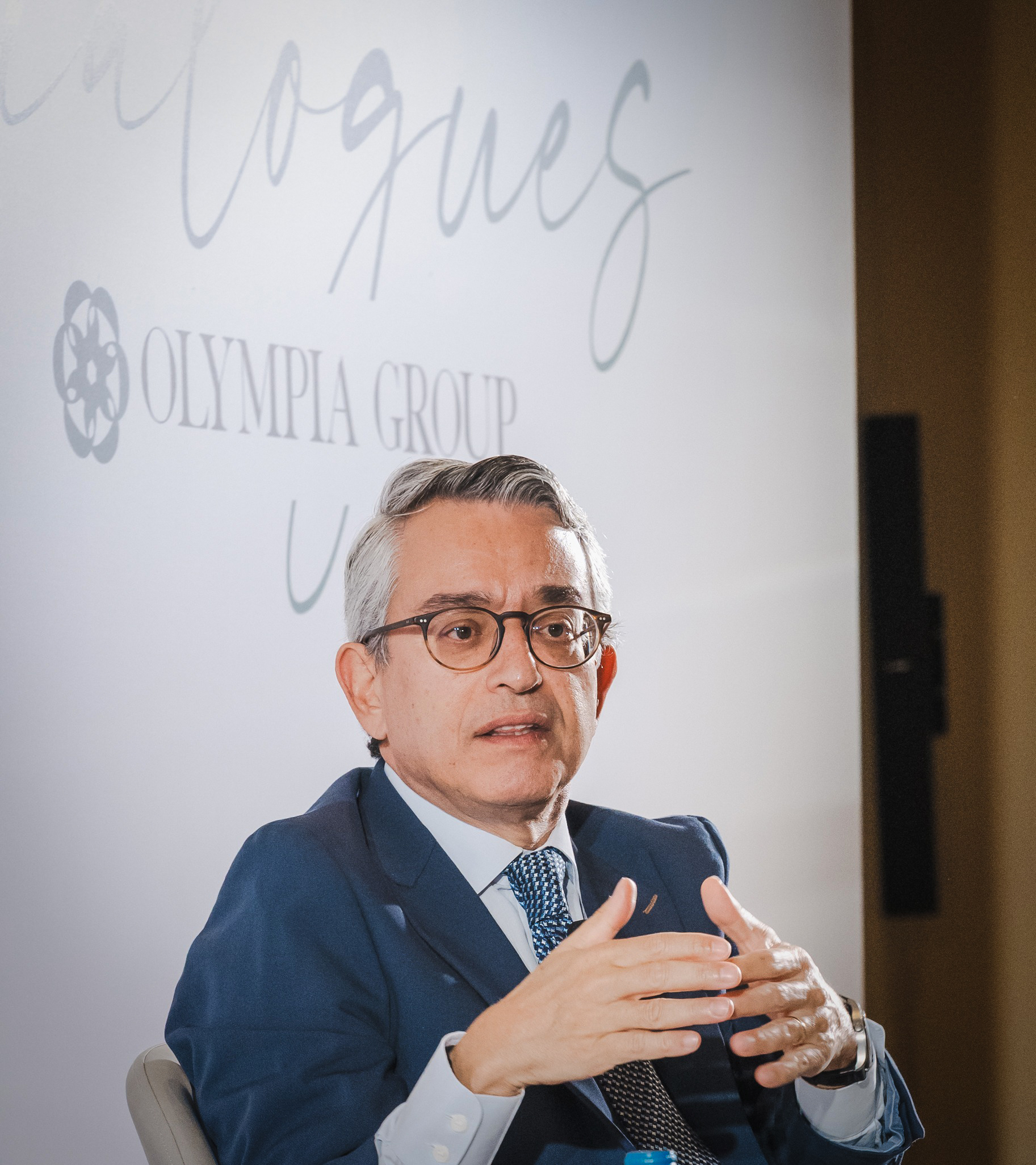“There is no reason why Greece cannot evolve into a success story similar to that of Singapore. And it is a mistake to compare your country to Denmark or Portugal. A more accurate comparison would be with Singapore.” With this statement, Sadek Wahba, Chairman and Managing Partner of I Squared Capital, one of the world’s leading institutional investors in infrastructure and energy, highlighted Greece’s rising prospects on the global investment map during his address at Olympia Dialogues.
Dr. Wahba participated in a fireside chat with Andreas Athanassopoulos, CEO of Olympia Group, under the title “Infrastructure: Learning from the Past, Building for the Future.” During the discussion, he remarked: “Singapore is a small island. Greece is a small country. Both face geopolitical challenges, but Greece has a unique advantage, it is under the umbrella of the European Union, which boosts investor confidence. Moreover, it has natural resources and a pool of exceptionally high-quality human capital.”
The head of I Squared, a fund with $50 billion in assets under management and investments in 70 countries, primarily in infrastructure, emphasized that: “Infrastructure is not just an economic indicator; it is the connective tissue that holds societies together. If you look at the poorest regions in the United States, you will see they are the ones with the most inadequate infrastructure. These areas face higher unemployment, more social issues, and more dependency. Infrastructure creates opportunities and enables societies to function harmoniously,” Dr. Wahba noted.
Discussing global trends, he pointed out that the world is gradually entering a new phase of mass infrastructure investment, ranging from transportation and energy networks to social and digital infrastructure with sustainability as the central focus. “Artificial intelligence may be software, but it needs physical infrastructure: data centers, energy, networks. Societies must build enough to protect themselves even from nature,” he said.
In his opening remarks, Mr. Athanasopoulos highlighted that infrastructure is among the most critical issues in the global conversation, with energy now high on the agenda. He also noted that in some cases, we are seeing an “oversupply” of new infrastructure. Dr. Wahba, however, stressed that “the interest in infrastructure investment is truly limitless,” explaining that artificial intelligence will create a new generation of demands that will require thousands of new data centers worldwide.
“And to operate those data centers, you need energy, reliable, clean, and sufficient,” he added.
Dr. Wahba also pointed out that despite the abundance of available capital globally, the number of mature, bankable projects remains limited. “We have a lot of capital but not enough projects worth financing. The reason is that in many cases, infrastructure is still owned by local governments or is constrained by complex regulatory frameworks,” he stated. According to Dr. Wahba, “the obstacles exist on many levels local, regulatory, institutional. The key is to create a stable policy environment that enables private capital to play a complementary role and accelerate development.”
He emphasized the importance of balance between the public and private sectors in managing and financing infrastructure investments, with each side needing to take on the role that suits it best.
Dr. Wahba further commented that, today, striking the right balance between autonomy and cooperation is critical. “Increasing tariffs will not achieve the intended goals, it’s a mistaken policy. Instead of building walls, we should be building bridges through investment, and infrastructure is the vehicle to do just that.”
When asked by Mr. Athanassopoulos which region of the world is currently the most attractive for infrastructure investments, Dr. Wahba responded that despite geopolitical challenges, “the United States is currently the best region in the world for infrastructure investments. It’s a mature market with outdated infrastructure and significant opportunities for renewal.” He also highlighted that Europe and Asia are attractive regions for projects in logistics, renewable energy, and storage. However, he pointed out that Europe, in particular, suffers from decision-making delays and regulatory hurdles due to frequent changes.
Concluding the discussion, Dr. Wahba addressed a message to the new generation of leaders: “No technology, no ChatGPT can replace physical interaction, collaboration, and vision. Infrastructure is not just roads and wires; it’s the foundation upon which we build societies.”

